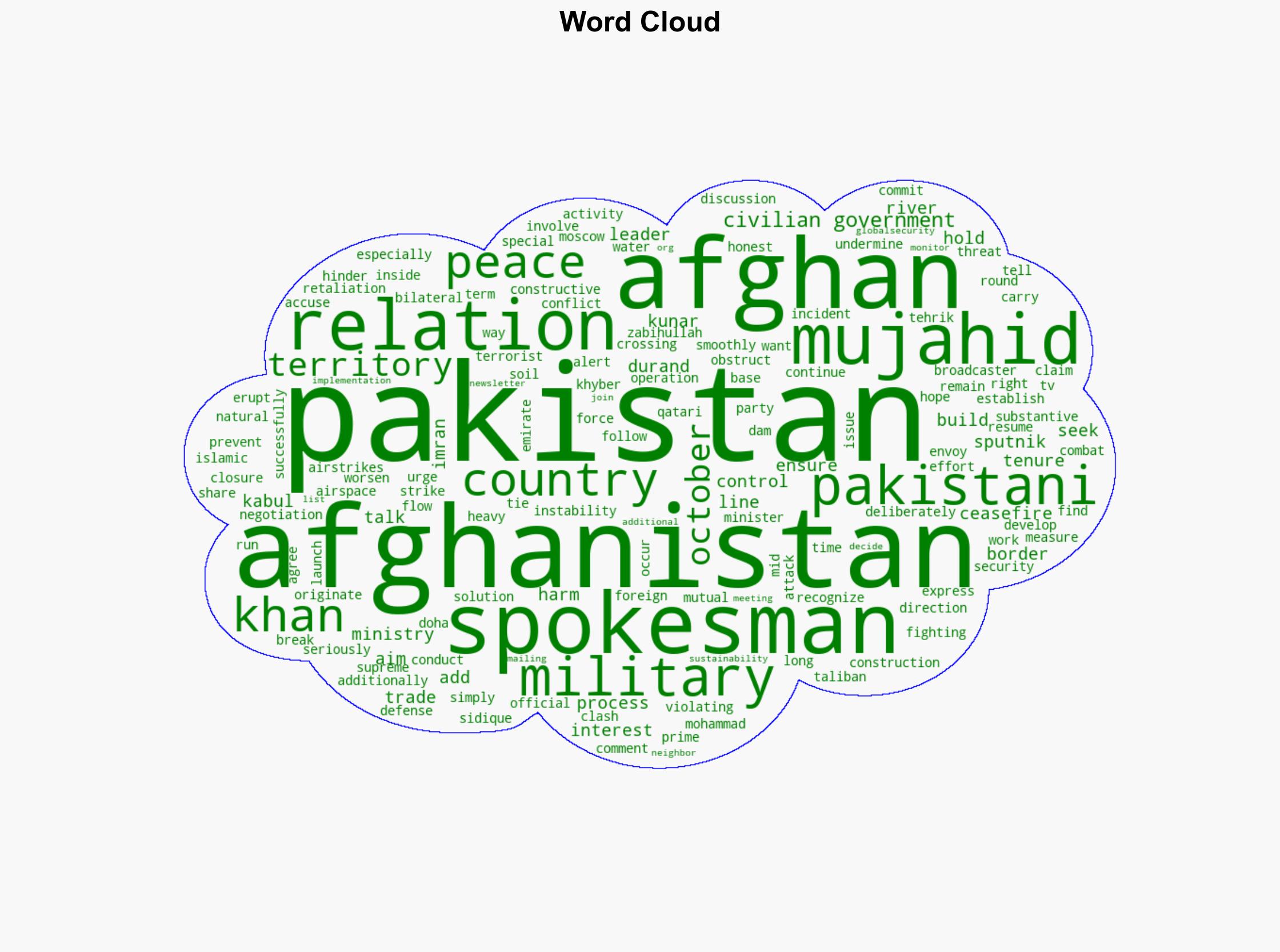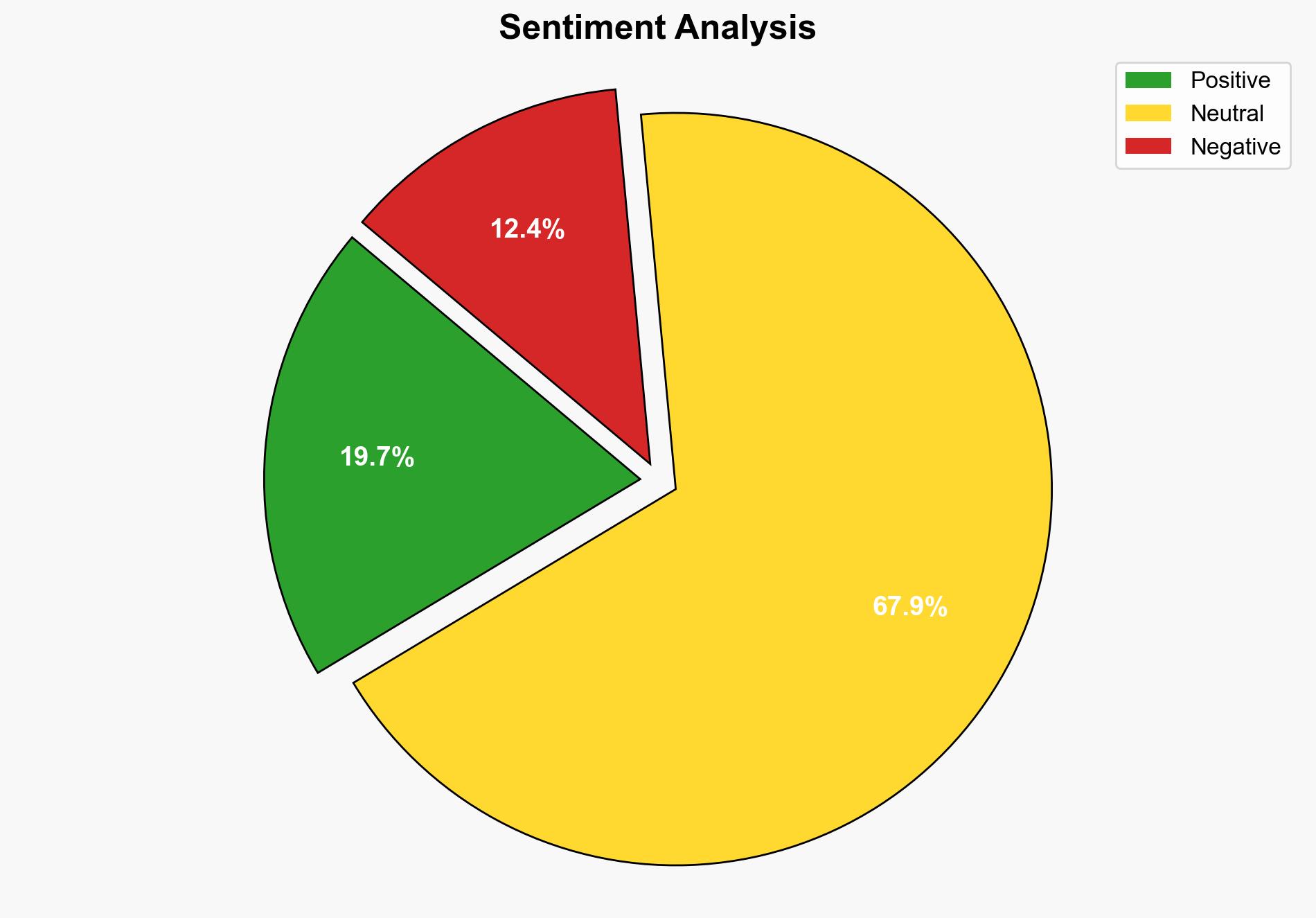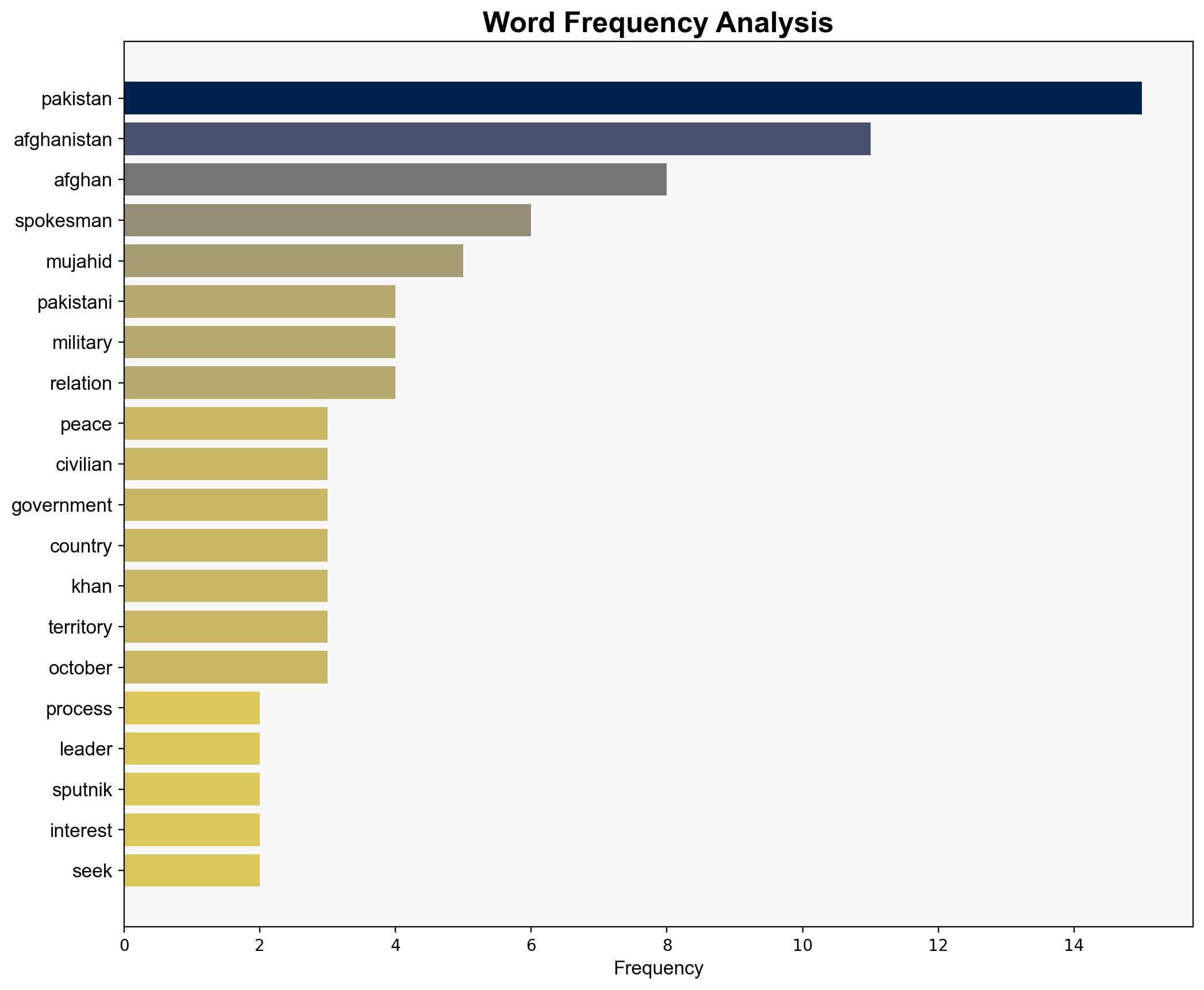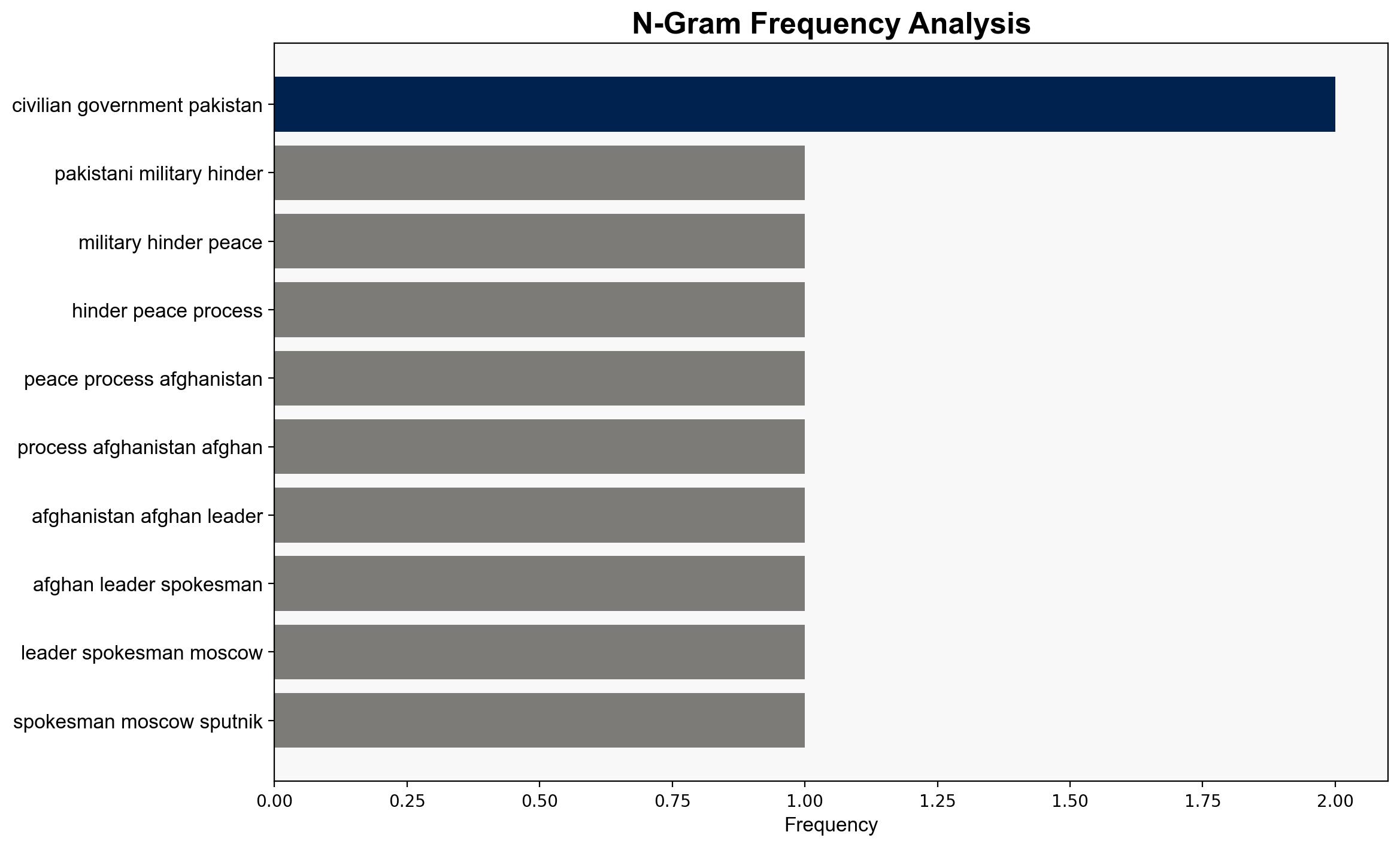Pakistani Military Hindering Peace Process With Afghanistan – Afghan Leader’s Spokesman – Globalsecurity.org
Published on: 2025-11-03
Intelligence Report: Pakistani Military Hindering Peace Process With Afghanistan – Afghan Leader’s Spokesman – Globalsecurity.org
1. BLUF (Bottom Line Up Front)
The most supported hypothesis is that elements within the Pakistani military are deliberately undermining the peace process with Afghanistan, despite the civilian government’s efforts to improve relations. Confidence level is moderate due to conflicting reports and lack of independent verification. Recommended action includes diplomatic engagement with both civilian and military leaders in Pakistan to clarify intentions and promote transparency.
2. Competing Hypotheses
1. **Hypothesis A**: The Pakistani military is actively hindering the peace process with Afghanistan to maintain strategic leverage and influence over Afghan affairs.
2. **Hypothesis B**: The perceived hindrance by the Pakistani military is a result of internal miscommunication and lack of coordination between Pakistan’s civilian and military branches, rather than a deliberate strategy.
Using ACH 2.0, Hypothesis A is better supported by the Afghan leader’s spokesman’s statements and the reported military actions along the Durand Line. However, the lack of direct evidence and reliance on spokesperson claims introduces uncertainty.
3. Key Assumptions and Red Flags
– **Assumptions**: Hypothesis A assumes the Pakistani military has a unified and coherent strategy that opposes the civilian government’s diplomatic efforts. Hypothesis B assumes internal discord within Pakistan’s governance structures.
– **Red Flags**: The absence of corroborating evidence from independent sources raises questions about the reliability of the claims. The potential bias of the Afghan spokesman, given the historical tensions, could skew the narrative.
4. Implications and Strategic Risks
– **Geopolitical Risks**: Continued tension could destabilize the region, affecting broader South Asian security dynamics.
– **Economic Impact**: The closure of border crossings and disrupted trade could exacerbate economic hardships in both countries.
– **Escalation Scenarios**: Persistent military skirmishes could escalate into broader conflict, drawing in regional powers and complicating peace efforts.
5. Recommendations and Outlook
- Engage in multilateral dialogue involving regional stakeholders to mediate and verify claims.
- Encourage confidence-building measures, such as joint monitoring of border activities.
- Scenario Projections:
- **Best Case**: Successful diplomatic intervention leads to resumed peace talks and reduced military tensions.
- **Worst Case**: Escalation of military conflict along the border, leading to regional instability.
- **Most Likely**: Continued low-level skirmishes with intermittent diplomatic engagements.
6. Key Individuals and Entities
– Zabihullah Mujahid
– Mohammad Sidique Khan
– Imran Khan
7. Thematic Tags
national security threats, regional focus, geopolitical dynamics, diplomatic relations





